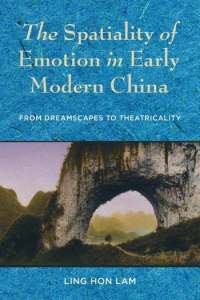NOW AVAILABLE via Project MUSE (requires institutional login): https://muse.jhu.edu/article/787090
I am looking forward to seeing my essay on the overlapping practices of creative dreaming, writing and reading in Can Xue and Jorge Luis Borges in print! It is forthcoming -in the august company of several really innovative articles on aural metaphors in literary criticism- in the belated December issue of The Canadian Review of Comparative Literature‘s special Issue “Cultural Resonance and the Echo Chamber of Reading,” guest edited by Shuangyi Li.
It performs a comparative reading of oneiric imagery in works by two different authors (Can Xue and Jorge Luis Borges) in two different genres (fictional short story and non-fiction essay) from two different languages (Chinese and Spanish), in order to challenge unidirectional notions of literary inspiration and allow them to sound together.
Though strikingly individual in her writing style, critics often compare the work of Can Xue (née Deng Xiaohua 1953-) to that of Jorge Luis Borges (1899-1986), an author whose writing she has analysed in detail in her monograph Interpreting Borges (解读博尔赫斯). This volume is itself a textual chimera, posing as a work of criticism, yet possessing much the same literary style and freedom as Can Xue’s creative writing. Borges approaches literary criticism and philosophical exegesis in a similar fashion in his non-fictions, many of which follow narrative patterns recognisable from his short stories in what literary scholar Ned J. Davidson calls “a successful amalgam of fiction and essay” and proclaims as “an acknowledged contribution of Borges to the history of genres.” Both authors, then, display a disinclination to separate practices of reading and writing. In this essay, I borrow Gaston Bachelard’s aural metaphor of poetic reverberation to study how literary inspiration works in ways more complex than the causal relationship indicated by authorial inspiration or, in aural terms, by source and echo.

The Canadian Review of Comparative Literature, Special Issue: Cultural Resonance and the Echo Chamber of Reading. December 2020 (47.4).
Introduction
Shuangyi Li 399
Resonant Listening: Reading Voices and Places in Born-Audio Literary Narratives
Sara Tanderup Linkis 407
Computational Resonance: Modelling Thomas Mann’s Early Novellas
Laura Alice Chapot 424
Sounds in Contact: The American Bird Sounds of a German-American Worker Poet and New Empirical Methods of Comparing Literary Sounds
Gunilla Eschenbach and Sandra Richter 449
Sounding the Dream: Crosscultural Reverberations between Can Xue and Jorge Luis Borges
Astrid Møller-Olsen 463
Echoes of the Past and Siberian Nature’s “Radical Otherness”: An Ecological Reading of Contemporary Travel Writing
Ana Calvete 480
National Renaissance and Nordic Resonance: Language History and Poetic Diction in Nineteenth-Century Sweden
Alfred Sjödin 496
Creative Destruction in Multilingual Sound Poetry: The Case of Eiríkur Örn Nor∂dahl
Karin Nykvist 514
The Resonance of Conflict: Genre and Politics in the Transatlantic Reception of The Quiet American
Oscar Jansson 533
Literary Resonances against Ideological Echo Chambers: Wu Zhuoliu’s Orphan of Asia and the Necessity of World Literature
Flair Donglai Shi 552
 Ling Hon Lam encourages us to think of emotions in terms of space; when we sympathize with a character in a play or feel something for another person, that emotion takes place, for it moves us outside ourselves. In Chinese this relation between space and emotion is described by the term qingjing; a scenery of feeling or in Ling’s translation an “emotion-realm”.
Ling Hon Lam encourages us to think of emotions in terms of space; when we sympathize with a character in a play or feel something for another person, that emotion takes place, for it moves us outside ourselves. In Chinese this relation between space and emotion is described by the term qingjing; a scenery of feeling or in Ling’s translation an “emotion-realm”.